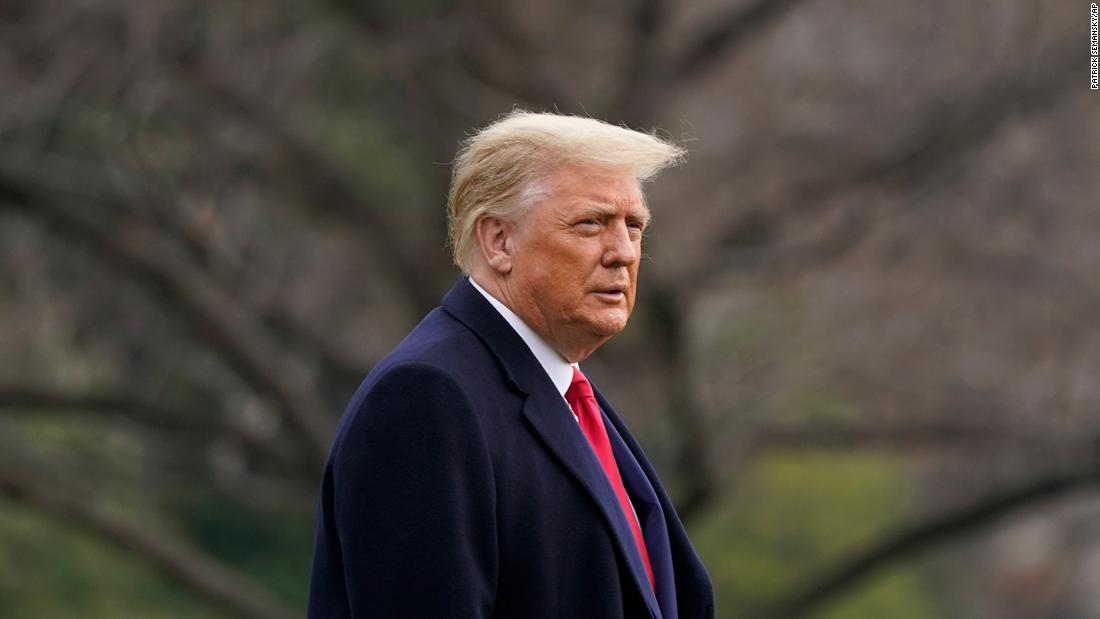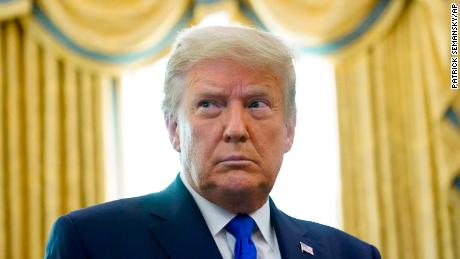Trump’s impeachment foretold everything that’s happened since
It was hardly clear then that Biden would end up as Trump’s general election opponent, much less that he would win. Biden was struggling through early Democratic primary debates on the way to embarrassing early losses in Iowa and New Hampshire.
When the Democratic-controlled House of Representatives approved articles of impeachment on December 18, 2019, every Republican in the chamber voted to exonerate him. Then the impeachment articles moved to trial in the Republican-controlled Senate, where Rep. Adam Schiff of California, the lead House prosecutor, appealed to the jury’s sense of values, morality and national security.
“You know you can’t trust this President to do what’s right for this country,” Schiff told senators. “You can trust he will do what’s right for Donald Trump. He’ll do it now, he’s done it before, he’ll do it for the next several months.”
“He’ll do it in the election if he’s allowed to,” Schiff concluded. “This is why if you find him guilty, you must find that he should be removed…Because right matters, and the truth matters. Otherwise, we are lost.’
An explosive new potential witness emerged by the time Senate Republicans began considering the case: The President’s former national security adviser, John Bolton, who had affirmed the truth of the charges against Trump in the draft of his forthcoming book.
Senate Republicans declined to summon his testimony. Instead, they constructed a partisan wall of defense.
They didn’t doubt Trump had presented Ukrainian President Volodymyr Zelensky with a quid pro quo. Republican Sen. Ted Cruz of Texas told White House lawyers to stop denying it, since no senator believed them.
Instead, Republican senators argued Trump’s transgression wasn’t serious enough to justify removal from office. For all but one of them, that was defense enough.
As the GOP’s 2012 presidential nominee, now-Sen. Mitt Romney of Utah brought unusual stature to the debate. As a devoutly-religious Mormon, his conscience wouldn’t permit a vote to acquit Trump of abusing his power.
“The President asked a foreign government to investigate his political rival,” Romney said on the Senate floor. “The President withheld vital military funds from that government to press it to do so. The President delayed funds for an American ally at war with Russian invaders.
“The President’s purpose was personal, and political,” Romney added. “It was a flagrant assault on our electoral rights, our national security and our fundamental values. Corrupting an election to keep oneself in office is perhaps the most abusive and destructive violation of one’s oath of office that I can imagine.”
The other 52 Republican senators voted to keep Trump in the White House. Sen. Susan Collins of Maine rationalized her decision by saying the episode taught Trump “a pretty big lesson.”
This past year has, in fact, taught some pretty big lessons. None was the lesson Collins suggested.
Schiff was right about Trump. The election and its aftermath have shown the self-obsessed President learned nothing from impeachment.
As the California Democrat predicted, Trump has placed his own interest above the country’s. He attacked voting procedures, refused to concede to Biden and delayed the presidential transition. He has triggered groundless legal challenges and machine-gun blasts of lies to undermine faith in the democracy itself.
Collins and other Republicans were right in their political calculations. In a state Trump lost by nine percentage points, she won a fifth Senate term.
Barring the loss of both Georgia seats in a January 5 runoff, Senate Republicans will retain control of the chamber. House Republicans gained seats even as Trump lost.
Schiff’s assessment of the stakes for America — “if the truth doesn’t matter, we’re lost” — remains an unsettled question.
The Senate shielded Trump. A majority of voters did not.
Trump has responded by challenging democracy itself — with the acquiescence of most powerful Republicans, but against the resistance of a well-placed few.
For now, democracy has held.
![]()




